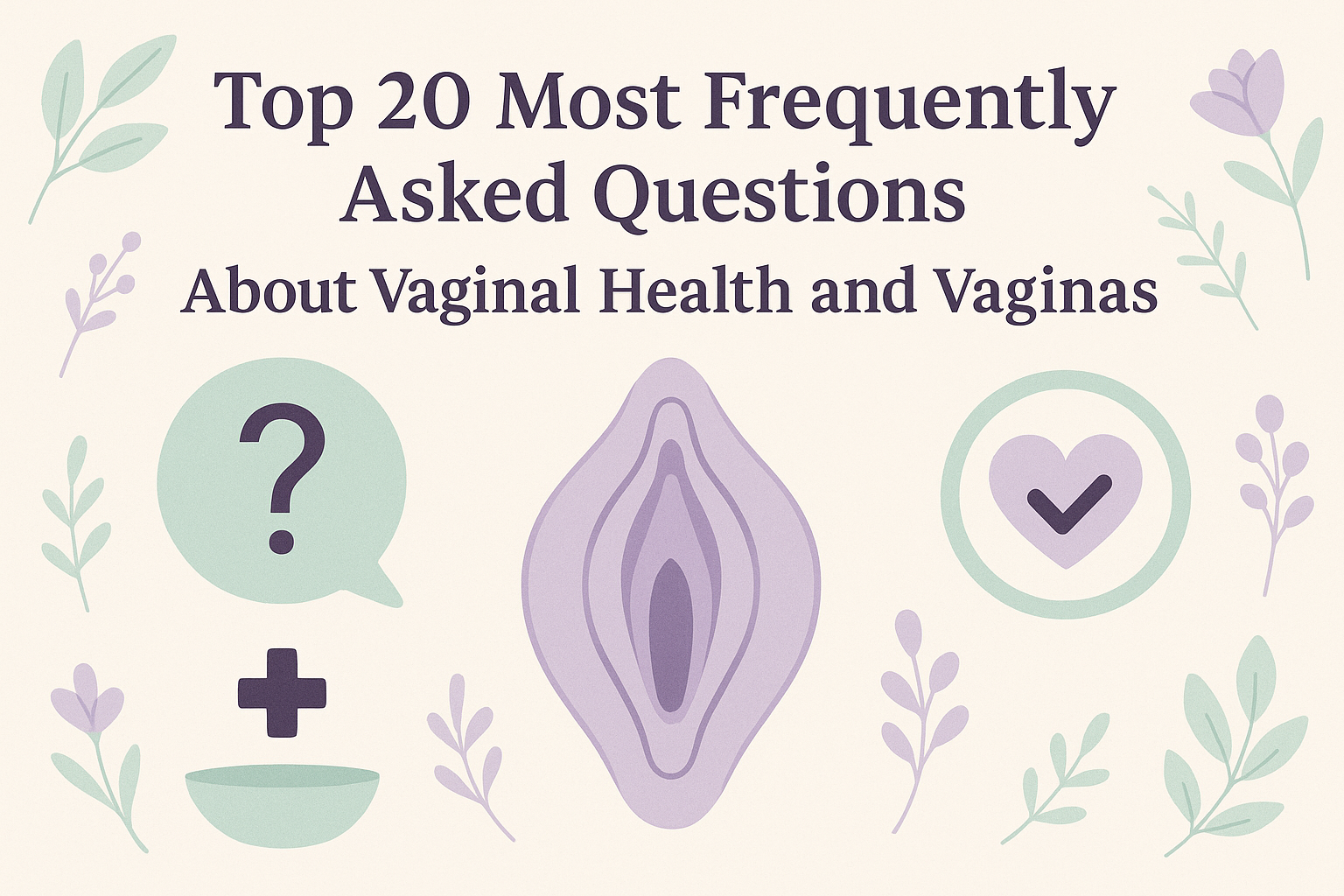-
Q: What is the vagina? A: The vagina is a muscular canal in the female reproductive system that connects the uterus to the external opening.
-
Q: How should I clean my vagina? A: It is recommended to clean the external genital area with mild soap and warm water. Avoid using harsh soaps or douches, as they can disrupt the natural balance of vaginal flora.
-
Q: What is normal vaginal discharge? A: Normal vaginal discharge is usually clear or white, and it helps to keep the vagina clean and moist. The amount and consistency of discharge can vary throughout the menstrual cycle.
-
Q: What can cause abnormal vaginal discharge? A: Abnormal vaginal discharge can be caused by infections such as yeast infections, bacterial vaginosis, or sexually transmitted infections (STIs).
-
Q: What is a yeast infection? A: A yeast infection, also known as vaginal candidiasis, is a common fungal infection that causes itching, burning, and a thick, white discharge.
-
Q: How can I prevent yeast infections? A: You can reduce the risk of yeast infections by practicing good hygiene, avoiding douching, wearing breathable underwear, and avoiding excessive use of antibiotics.
-
Q: What is bacterial vaginosis? A: Bacterial vaginosis is a common vaginal infection caused by an imbalance of bacteria in the vagina. It is characterized by a grayish-white discharge with a fishy odor.
-
Q: Can I have sex if I have a yeast infection or bacterial vaginosis? A: It is generally recommended to avoid sexual intercourse until the infection has cleared to prevent spreading or worsening the condition. Consult with a healthcare professional for specific advice.
-
Q: What are some common symptoms of sexually transmitted infections (STIs)? A: Common symptoms of STIs may include abnormal vaginal discharge, itching, burning, pain during urination, genital sores, or unexplained pelvic pain. However, many STIs can be asymptomatic.
-
Q: How can I prevent STIs? A: To reduce the risk of STIs, practice safe sex by using condoms consistently and correctly, getting vaccinated for STIs such as HPV, and having regular screenings if sexually active.
-
Q: Can douching help maintain vaginal health? A: No, douching is not recommended as it can disrupt the natural balance of bacteria in the vagina and increase the risk of infections.
-
Q: What can cause vaginal itching? A: Vaginal itching can be caused by various factors, including yeast infections, bacterial vaginosis, allergic reactions, irritants, or skin conditions such as eczema or psoriasis.
-
Q: Is it normal to have a strong vaginal odor? A: Vaginal odor can vary among individuals, but a strong, fishy odor may indicate an infection such as bacterial vaginosis or an STI. Consult with a healthcare professional if concerned.
-
Q: Can hormonal changes affect vaginal health? A: Yes, hormonal changes, such as those that occur during menopause or pregnancy, can impact vaginal health by causing changes in vaginal moisture levels and tissue elasticity.
-
Q: Can wearing tight underwear or pants affect vaginal health? A: Wearing tight underwear or pants that don't allow for proper air circulation can increase moisture and heat in the vaginal area, potentially leading to infections or irritation.
-
Q: How often should I have a pelvic exam or Pap smear? A: The frequency of pelvic exams and Pap smears depends on factors such as age, sexual history, and previous test results. It is best to consult with a healthcare professional for personalized recommendations.
-
Q: Can using scented products in the vaginal area be harmful? A: Yes, scented products such as soaps, lotions, or sprays can disrupt the natural pH balance of the vagina and lead to irritation or infections. It is best to avoid using them in the vaginal area.
-
Q: What is vaginal atrophy? A: Vaginal atrophy refers to the thinning, drying, and inflammation of the vaginal walls due to a decrease in estrogen levels, often occurring during menopause.
-
Q: How can I relieve vaginal dryness? A: Vaginal moisturizers, water-based lubricants, and estrogen-based treatments (prescribed by a healthcare professional) can help relieve vaginal dryness and discomfort.
-
Q: Can a vaginal infection affect fertility? A: Some vaginal infections, if left untreated, can lead to complications that may affect fertility. It is important to seek prompt medical attention if experiencing symptoms of an infection.




